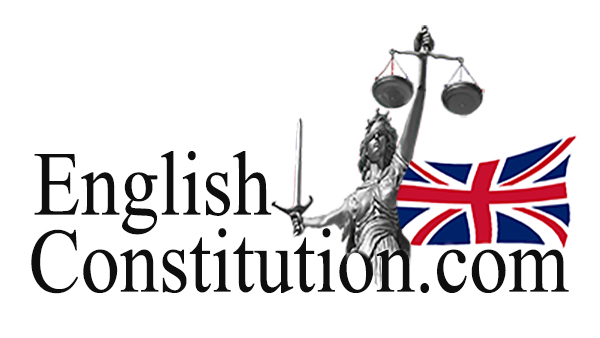
What is English Constitution Movement?
English Constitution Movement is a non-political, independent and impartial one-voice action group established to safeguard English constitutional principles, to ensure civilians are not overcome by the erosion of rights and protections afforded by them, and the statutory laws of the land.
The ones eroding our rights cannot be entrusted, so we established our movement to do it, and to do it well, with an emerging international brand, a media platform advocating the rule of English law, EnglishConstitution.com, everyone knows where to find us.
Public life and government officials are expected to uphold high standards of honesty, fairness, and accountability, yet in these times those constitutional principles are absent, in an increasingly corrupt administration.
We urge everyone who cares about our great land, to do something really special today, and become part of it, join us.
We’re taking legal action against the establishment, who tend to deliberately shield those in power from accountability. ‘No one is above the law’, and the constitutional oaths of office were designed to ensure proper conduct.
We’re enforcing the constitutional oaths of office by holding the wrongdoers to account, from the top down. In order for change to happen, we must create it.
We aim for a million plus members, making us one of the most powerful action groups, dedicated to direct action, creating audience through viral marketing awareness campaigns, and by lobbying Parliamentarians to enact carefully scrutinized law to ensure that those who take oath of office, stick to the promises they have made.
Our English Constitution ™ clothing line is soon to be launched worldwide, spreading our message with our exciting range of trendy branded polo shirts, chinos, shorts, sweaters, hoodies and more.
We the People are private guardians of the English Constitution and the rights and protections afforded to each of us by it, are our birthright, together we’re here to ensure everything that makes Britain Great, is regained and restored so that it stays that way.
English Constitution Movement promotes equity and English Principles, and it is our shared ethos that everyone is equal and that the people of England and Wales, must be governed strictly in accordance those principles set out below in our campaign site.
The 10 English Constitution Commandments:

‘An Englishman’s home is his castle‘
1.1. The people of England and Wales have the inalienable right to peaceful enjoyment of their property, with the only limitation to the right being one imposed by law, or in the public interest.
1.2. No one, and no public body, is permitted to infringe on the right to autonomy, privacy, security and freedom from third party interference. The homeowner has the right to protect himself, his family, his home and his property.


‘Ubi jus ibi remedium‘
2.1. Translated from Latin, it means ‘where there is a wrong, there is a remedy‘ and it’s one of the maxims of equity in the common law English jurisdiction.
2.2. Maxims of equity serve a set of rules and principles developed over hundreds of years by the Court of Chancery establishing a responsive equitable approach to individual needs, accounting for a party’s conduct, credibility and equitable standing, ensuring fairness and preventing wrongs without remedies.


‘Equity will not allow a wrongdoer to profit by a wrong‘
Equity will not suffer a wrong to be without a remedy, meaning essentially that in common law the one who has suffered the wrong has the stronger hand.
Courts of equity must prevent individuals from gaining from their own wrongdoing or negligence.
The legal maxim, known as ‘ex turpi causa non oritur actio‘ in Latin, translates to “no right of action arises from a dishonorable cause” and it makes it effective in common law that a party cannot pursue legal action if their action is based on an illegal or immoral act.
Ex turpi causa non oritur actio, also known as the illegality defence, is rooted in the public policy principle that the law will not assist someone who has been harmed while engaging in illegal or immoral behavior, particularly in situations where the illegality or wrongdoing is directly related to the harm suffered.

Lord Mansfield said in Holman v Johnson (1775) 1 Cowp 341, 343 that “no court will lend its aid to a man who founds his cause of action upon an immoral or an illegal act”.
In Patel v Mirza [2016] UKSC 42, the Supreme Court said this in its reasons for giving judgment:
“Behind this maxim, there are two broad policy reasons for the common law doctrine of illegality as a defence to a civil claim. First, a person should not be allowed to profit from his own wrongdoing. Second, the law should be coherent and not self-defeating, condoning illegality by giving with the left hand what it takes with the right hand.”

‘he comes into equity must come with clean hands‘
4.1. The ‘clean hands doctrine’ runs in parallel with the principles above, requiring a court to deny equitable relief to a party who has violated good faith in relation to the causation of the claim.

‘Equity does not punish‘
5.1. In common law, equity’s function provides compensation for loss, ensuring and enforcing fairness. Equity’s function is not to penalize a wrongdoer with punitive measures or exemplary damages, rather, courts of equity must restore the wronged party to their original position, compel restitution, and award compensation for losses resulting from a breach of duty.
5.2. In Vyse v. Foster Chancery Application [1871] Lord Justice James said this of the maxim;
“This Court is not a Court of penal jurisdiction. It compels restitution of property unconscientiously withheld; it gives full compensation for any loss or damage through failure of some equitable duty; but it has no power of punishing anyone.”
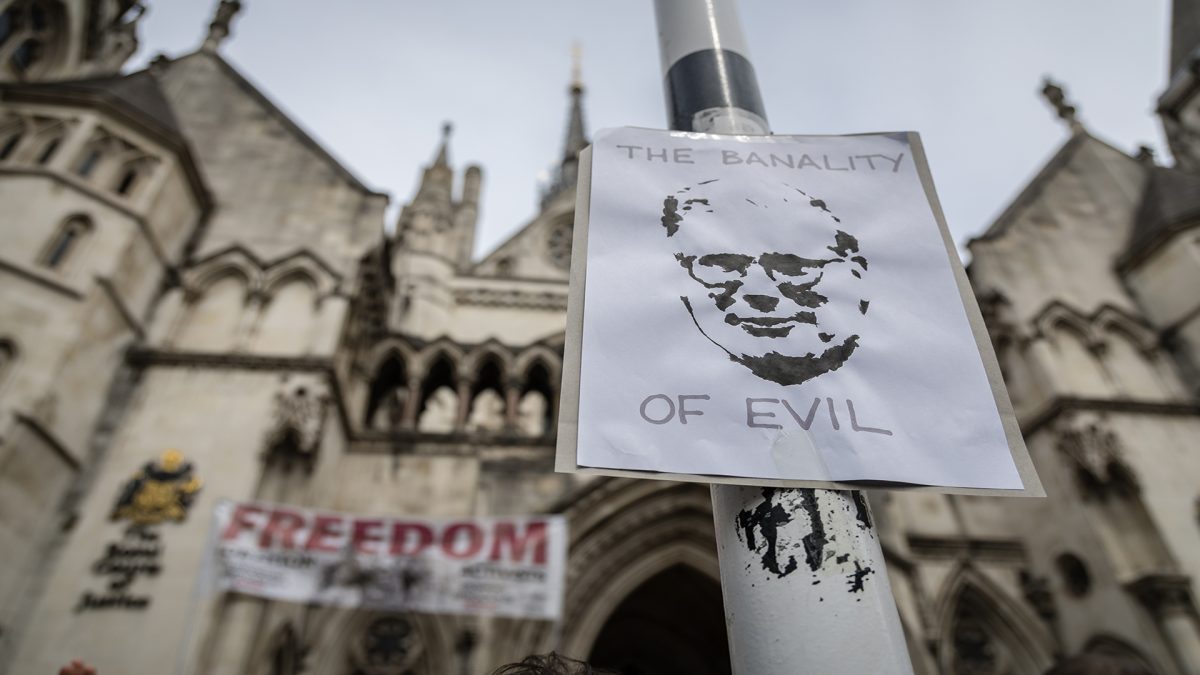

‘Nemo judex in causa sua‘
6.1. Nemo judex in causa sua is an important principle of natural justice, it translates to ‘no one should be a judge in his own case‘.
6.2. The principle requires that judges and public authorities are to be impartial and free from personal bias, conflicts of interest, or pecuniary interest in a case in which he is making a decision.

‘Audi alteram partem‘
7.1. Audi alteram partem means ‘hear the other side’ or, and, ‘let the other side be heard as well’, a crucial principle of natural justice, ensuring that no person should be judged without a fair hearing, and that each party is given the opportunity to be heard, responding to the evidence against them.

‘Equity looks at substance rather than form‘
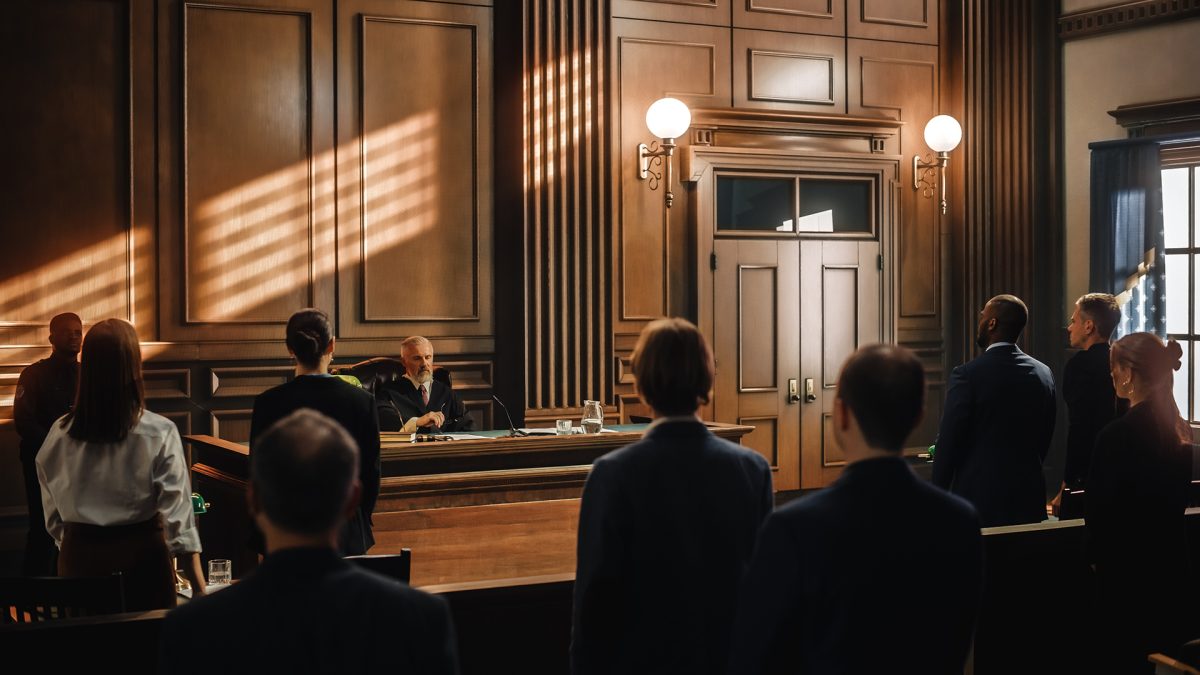
8.1. Equity operates on the substance of facts of the matter, and not to the technicalities of how those facts are presented.
8.2. Courts of equity must focus on the underlying reality and true intent of a transaction or situation, rather than strictly adhering to the technical, or procedural outward legal appearance. This principle allows equitable courts to provide justice and fairness by looking beyond rigid legal formalities to address the ethical and moral aspects of a case and ensure that a wrong is not left without a remedy due to a technicality or procedural error.

‘Justice must not only be done, but must also be seen to be done‘
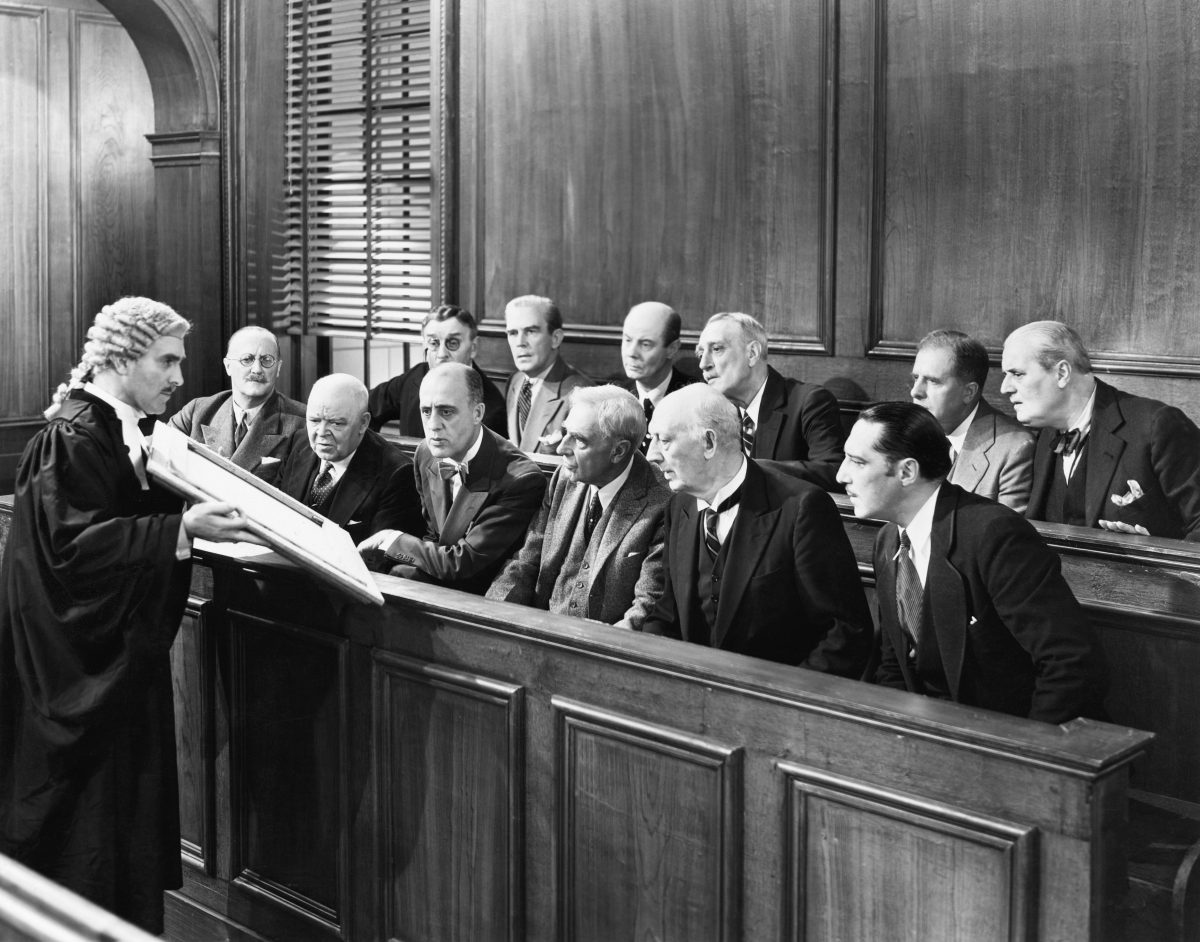
9.1. Court proceedings must be conducted in public, allowing the media and the public to observe and report on them.
9.2. Judges and courts must not only be impartial in their actions but also appear to be so to the public. The maxim arises from the Lord Chief Justice, Hewart, in the case of R v Sussex Justices, ex parte McCarthy [1924] 1 KB 256, [1923] All ER Rep 233.

‘Justice delayed is justice denied’
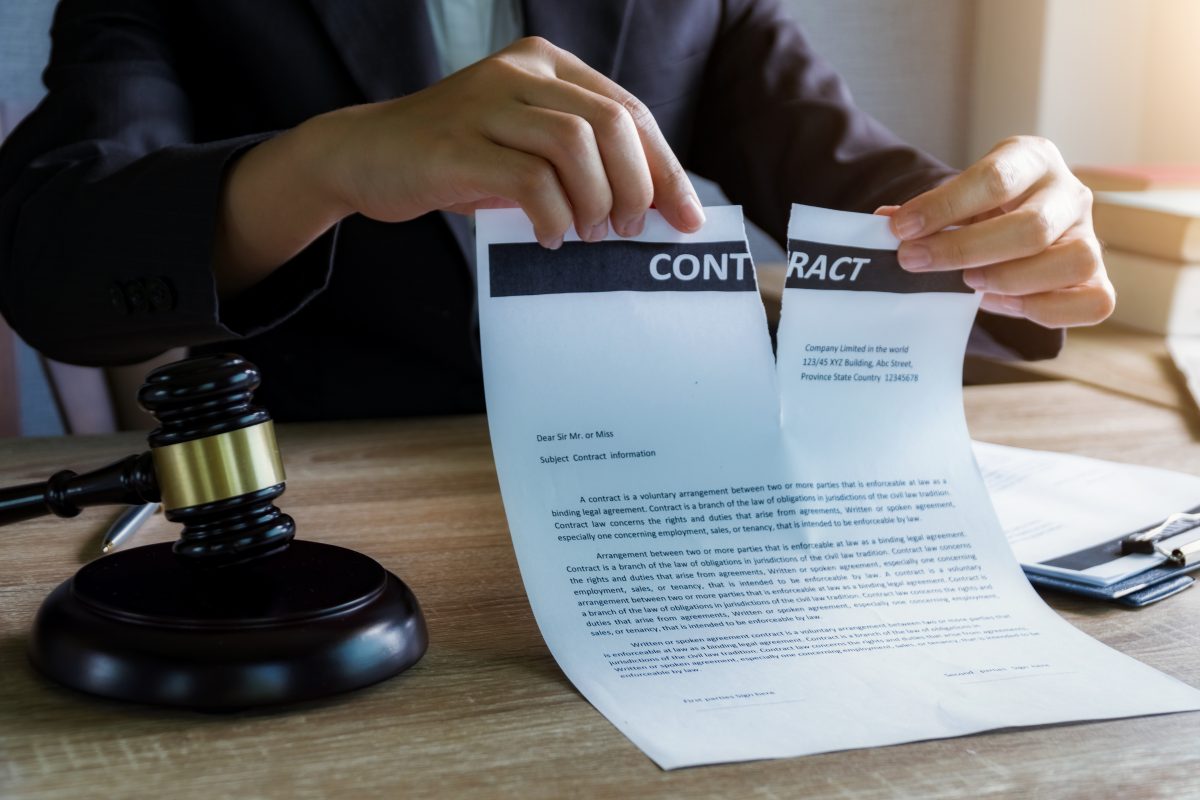
10.1. ‘Justice delayed is justice denied’ is a legal maxim, and what it means is essentially that if legal restitution (remedy) for an injured / wronged party is available, but is not promptly forthcoming, the justice delayed is effectively the same as having no remedy at all.
10.2. Remedy denial is injustice, presenting as unfairness for the injured / wronged party due to the phycological impact of the injured losing hope of a timely and effective remedy.
10.3. Clause 40 of the Magna Carta of 1215, says: “To no one will we sell, to no one will we refuse or delay, right or justice“, and we believe this originates the maxim, well embedded in English law.
10.4. Courts are also under statutory duties, including those of Rule 1.2 and 1.4 (the overriding objective), Part 1 of the Civil Procedure Rules 2020 to deal with cases expeditiously and justly, conveying the spirit of the maxim into a statutory legal duty.
A dire constitutional crisis is extinguishing and eroding the English Constitution
It is our view after investigation of dozens of high profile cases alleging judicial fraud and corruption that independence of the judiciary is too greatly compromised.
Civilians can no longer rely on the strength of completed contract terms to gain restitution and rights and protections granted by the law are walked over by an increasingly complacent and corrupt administration.
“Weaponising the criminal justice system is a very grave, dark and dangerous turn in British politics. This was not normal Westminster infighting. The Reform leadership tried to put me in prison on false allegations.” – Rupert Lowe MP. April 2025.
Join us today for as little as £11 per month (or £121 a year). Your membership fee is a donation toward our fighting fund, dedicated exclusively to restoring English constitutional principles and holding those who breach their duties in public office to account.
